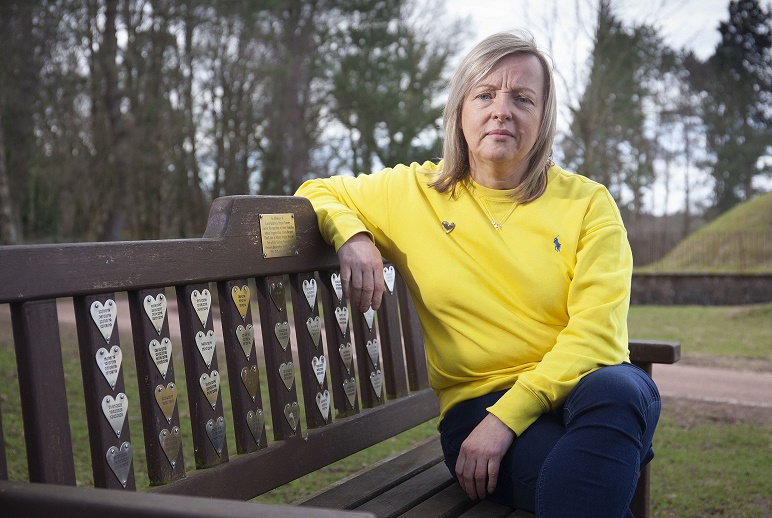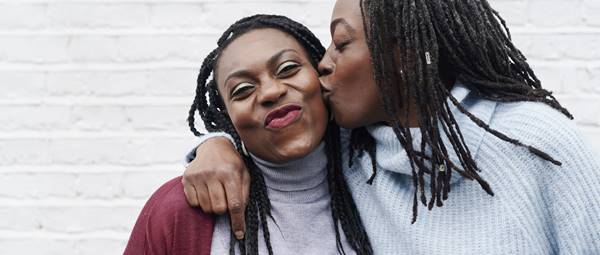Opt out system of organ and tissue donation begins in Scotland
Wife marks two-year anniversary of husband’s donation by encouraging others to share their decision.
Organ donation law in Scotland has changed
The law around organ and tissue donation in Scotland changes to an opt out system from today (26 March 2021) to save and improve lives.
The change means that if people aged 16 and over haven’t recorded a decision about donation, they will be considered a possible donor if they die in circumstances in which they could donate.
A national campaign, running in the lead up to the law change, highlights that everyone in Scotland has a choice – to be a donor or to opt out of donation – and reinforces the importance of people making their donation decision known.
Backing the campaign, a woman able to honour her husband’s organ donation decision, today encouraged people to have that vital conversation with loved ones.
Elaine's story
Elaine Kennedy, 45 from Viewpark in Uddingston, lost husband David, 43, in March 2019 following an accident at work.
She shared how knowing David wanted to donate, after a chance conversation when she was renewing her driving licence, made it easier for her and David’s family. He went on to donate his kidneys, liver and pancreas, transforming the lives of many.

People can record their decision to be a donor or to opt out on the NHS Organ Donor Register at any time. If people do nothing when the law changes, it will be assumed they agree to donate, unless they are in a group for whom the law does not apply.
Sharing that decision with family remains important as they will still be involved in the donation process, and having that knowledge can make it easier for them to ensure a loved one’s decision is honoured.
The opt out system will add to the package of measures already in place in Scotland, which have led to significant increases in donation and transplantation over the last decade.
There are an average of around 500 people waiting on an organ transplant at any one time, however only around one per cent of people die in a way that makes organ donation possible.
Elaine and David had known each other since the age of four, but reconnected in 2008 and were engaged just three months later, marrying in 2011 and enjoying life with their two dogs.
One evening at work, David sustained significant injuries, which resulted in him having a stroke and developing other complications.
Nurse Elaine, 45, said:
“David worked night shift, so I hurried home to have a bit of time with him before he had to head out.
“I told him I loved him and that I’d take out the dogs in the morning, so he didn’t have to, and off he went to work. He was a clumsy guy, so I when I got a message from his supervisor to say he’d had an accident, I thought to myself ‘What he has done now?’ and headed straight to the hospital to see him.
“Being a nurse, I started to think practically about everything – my wife head wasn’t on, my nurse head was. I’ve been involved in organ donation from a professional side, and when I realised that it really wasn’t looking good for David, I told the doctor that he was a registered organ donor and this is what we should look at if it comes to that.
It's bittersweet, you never want to find yourself in that position...Elaine
“David was able to donate both his kidneys, his pancreas and his liver. It’s bittersweet – you never want to find yourself in that position, but the fact that there’s three recipients and families out there who may have been given a quality of life they didn’t have before, has helped in our devastation.
“The hospital staff were so good throughout, and at the bottom of David’s operation notes following his organ donation his consultant had taken the time to write ‘Thank you for your organ donation’.”
Talking about the importance of sharing your donation decision, Elaine said:
“You have these flippant conversations – as a diabetic I have to renew my driving licence every three years, and as I looked at the box on the form asking me about organ donation, I asked David if he was an organ donor. He said ‘No, but why not?’ and that was that; he signed up to the Register.
Not knowing what he wanted would’ve made it harderElaine
"Because of that conversation, myself and David’s family were able to honour his decision. I had more time to digest David’s wishes than his family and I was clear about what he wanted to happen when I raised it with the doctors. But after talking it through with them, in that moment, we all wanted to respect David's wishes. He was such a selfless and generous person in life, he wanted to make everyone happy and this was the last thing he could do for someone else.
“If we hadn’t had the conversation, I’d have always had a wee bit of doubt in my mind whether we did the right thing, but it makes it more valued knowing that this is what he wanted.
“David was awarded the Order of St John for his donation and going to the ceremony, hearing the recipient stories was so inspiring. I think donating your organs is the most selfless thing you can do, but it’s got to be the right decision for you.
“I really hope the law will get people talking about organ and tissue donation, even us nurses find it hard at times. But it can happen to anyone, you just don’t know what’s round the corner.”
Get more information
For more about the law change, and to record your donation decision:
- Visit organdonationscotland.org or
- Call 0300 303 2094

